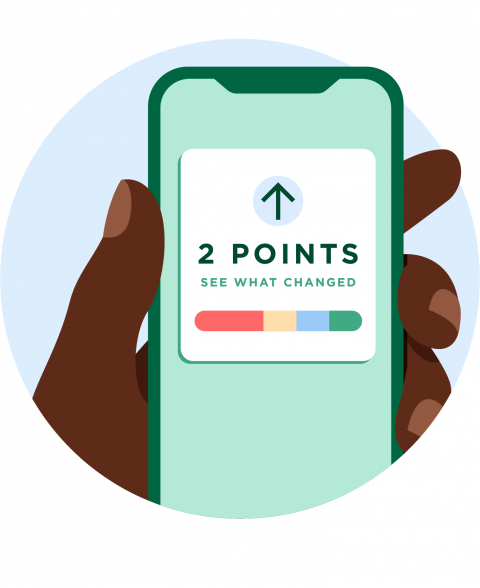How to Close Credit Card Without Hurting Score
Closing a credit card can subtract points from your credit score. The impact is likely to be greatest if you are relatively new to credit and/or have few cards.
A lower credit score might make it harder to qualify for an apartment, a loan or another credit card, particularly if your credit score is near a lender's cutoff. (You can see where you stand with your free credit score , which updates weekly on NerdWallet.)
The potential loss of credit score points doesn't mean you should never close a credit card, but it does mean you should think strategically and choose carefully.
Get score change notifications
See your free score anytime, get notified when it changes, and build it with personalized insights.

How canceling a card can hurt your score
How much credit you're using. Canceling your cards with the highest credit limits could potentially do the most damage. The second-biggest influence on your score is how much of your credit limit you use, called credit utilization . That's calculated both per card and overall.
Personal finance experts recommend using less than 30% of your credit limit; the highest scorers generally use less than 10%. Say you have three credit cards — two with $5,000 limits and one with a $10,000 limit, for a total of $20,000. If your total balance across all three cards is $2,000, your credit utilization is 10%.
If you canceled the card with the $10,000 limit, you would cut your overall credit limit in half. Now your $2,000 balance is 20% of your limits, and that higher utilization will affect your credit score.
With credit, older is better. The average age of your credit cards also affects your score. The impact is not nearly as large as credit utilization, but the age of your account does matter. A card you've had for a long time helps your credit as long as you keep it open.
When canceling a credit card makes sense
If the card carries an annual fee you don't think is worth it, you might want to cancel. You also might want to if customer service is consistently poor. But it's smart to have an idea of what closing the card would do to your credit score before you do it, even if you have a compelling reason.
Some cards aren't meant to be kept forever. Secured cards , for example, are like credit-card training wheels. Once you've shown you consistently pay on time, some issuers will allow you to "graduate" to an unsecured card with better terms. But if the issuer doesn't offer cards that are more desirable, canceling may be a smart option. (Before closing your account, take these steps .)
Alternatives to canceling
If you are canceling because of fees, you could consider calling the issuer and asking if it has cards you would qualify for that are fee-free. You might be able to switch to another card from the same issuer and keep your payment history.
The same goes for cards that are no longer a good fit. Maybe you wanted an interest-free period when you opened a card, and now you would rather have a travel rewards card. If the issuer offers one you qualify for, you may be in luck.
If the card you are thinking of closing simply doesn't offer competitive terms, using it at least occasionally will keep the issuer from closing it. Keeping your card active and paid off every month will help raise your credit score and make you eligible for a new credit card offering that offers rewards and specific perks. Even if it's not your favorite card (or even in the top 10), it may be worth saving because it helps boost your average age of credit. You can put a small, recurring charge on it on autopay.
How to Close Credit Card Without Hurting Score
Source: https://www.nerdwallet.com/article/finance/does-closing-a-credit-card-hurt-credit-score
0 Response to "How to Close Credit Card Without Hurting Score"
Post a Comment